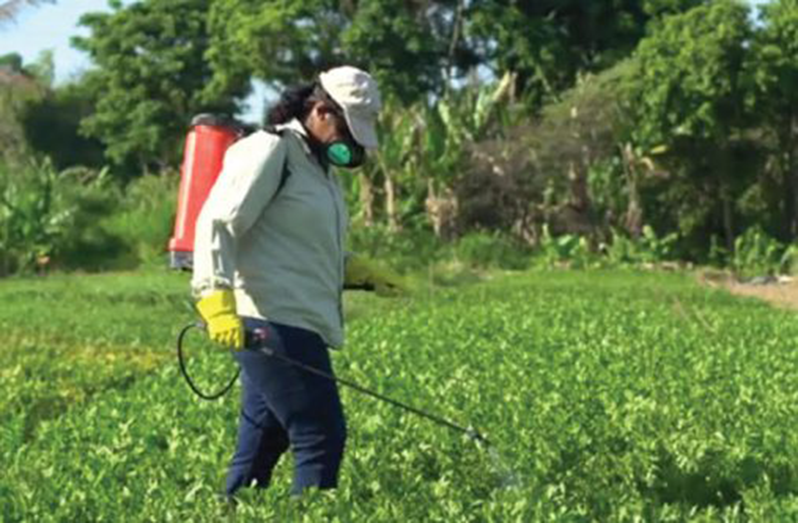THE Ministry of Agriculture (MoA), through the Pesticide and Toxic Chemicals Control Board (PTCCB), will soon commence training programmes to educate farmers across the country on how to properly administer pesticides and other agro-chemicals.
This was revealed by Trecia David, the board’s Registrar, on Sunday evening during the ministry’s ‘Agriculture in Focus’ programme. David stated that over years the agency has been highlighting the need for continuous campaigns and programmes to educate farmers about the correct practices when using pesticides and agro-chemicals.
She added that while they have managed to do such in a classroom setting, the board is now looking to change its way of educating farmers and to adapt a more hands-on and practical training method. “One of the things that we have done since 2008 is extensive training country-wide, but what we have had to do now is be innovative and [revamp] our training techniques in 2021,” David said.
She explained that during this year there will be lots of training. “Although we have COVID and we are dealing with working in that setting it’s going to be a year where we re-launch a lot of our training activities but at a different stand point of providing more practical training,” she said.
During the programme, she explained that the board will also focus on informing the farmers about the importance of the use of agro-chemicals and the negative impact it can have on their business, their personal health and that of others if not used correctly.
“It is key that farmers certainly understand that their practices are going to ultimately impact their ability to trade certain produce or even sell at the local level and then of course regionally and internationally,” she said. She further explained that when farmers overuse or misuse agro-chemicals, particularly pesticides, their produce becomes non-consumable and therefore it is not fit for the local market or export.
“If you’re going to use pesticides, over-use or misuse is likely to have residues that can then affect your produce being acceptable for the local market trade. That is why it is so important to understand at this juncture [that] it is not just the understanding for them on what is the correct practice, but they have to understand the basis on which this becomes something that they have to do daily.”
David noted that during the year, the board will conduct more monitoring to ensure that its standards are met and farmers are producing the best quality product for the local markets, regional and international markets.
“Now there will be the facilities to monitor and there are legislations in place to actually ensure that these standards are met and if they are not met by you, the farmer, I’m sure that there is also provision for certain penalties to be instituted,” she said. Additionally, David stated that during this year, the ministry will be taking steps to have farmers registered and certified in their daily practices.
“One of the things that the agency is looking at is farmer registration. With that we are ensuring that farmers are certified in their practices as well as how they use pesticides. It will be a large undertaking, but we will be committed to trying to start that process this year and move forward,” she said.


.jpg)











